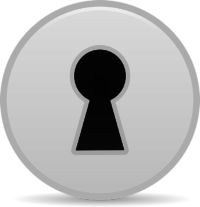 Radio is an industry with traditionally high turnover. When an employee leaves, it’s important the station has everything they need from them to keep things running smoothly. That’s especially true when a digital staffer moves on because stations maintain so many different online accounts.
Radio is an industry with traditionally high turnover. When an employee leaves, it’s important the station has everything they need from them to keep things running smoothly. That’s especially true when a digital staffer moves on because stations maintain so many different online accounts.
Here’s a checklist to help you make sure that you get all of the credentials that you need:
- Website Backend: Make sure you can log in to the back end of your website. If your website is built on a platform that uses a different login for each person (as opposed to a single login for everybody), then you will want to either delete the departing employee’s account or, if you want to keep the account so that any blogposts they published stay under their byline, simply change the password for their login.
- Website Hosting: This is where your website files actually live.
- Domain Registrar: This is where your website URL is registered. Often, it’s the same as your hosting company, but not always.
- Facebook: Facebook pages and groups do not use logins and passwords like many other services. Instead, a person’s personal account is attached to a business page or group. Remove the departing employee’s personal account from the page or group administrators.
- Twitter: Twitter uses a single login with a password. You will want to make sure that the email address associated with the station’s Twitter account goes to somebody besides the departing employee. You will also want to change the password. Remember, if you are using other software that automatically connects to your Twitter account, such as Hootsuite, you will need to update the credentials there, too.
- Instagram: Instagram uses a single login like Twitter.
- LinkedIn: LinkedIn works like Facebook, with personal accounts connected to the business. Remove the departing employee as an administrator on the business.
- YouTube: YouTube, which is owned by Google, uses a single login; it’s probably the same as the station’s Google login.
- Other Social Media: If your station is on Snapchat, Pinterest, or any other social networks, be sure to get those logins as well.
- Social Media Management Tools: TweetDeck, Hootsuite, Buffer, etc.
- Google Analytics: You can add multiple users to a Google Analytics account, so remove the departing employee.
- Email Marketing Service Provider: Constant Contact, Mailchimp, AWeber, etc.
- Podcast Hosting: If your station produces podcasts, your audio files reside with a hosting company like Libsyn, Blubrry, or Omny Studio.
- Audio Sharing Accounts: Soundcloud, TuneIn, etc.
- Apple ID and Podcasts Connect: If you have submitted podcasts to iTunes/Apple Podcasts, make sure you have this login.
- Mobile App Developer Accounts: If your station has a mobile app that’s available in the Apple or Google app stores, get the logins for the developer accounts.
- Smart Speaker Developer Accounts: If you built a skill for the Amazon Echo in house, you may have an Amazon developer account.
- Streaming Service Account: Stream Guys, Triton, etc.
- Other Podcast Directories: Stitcher, etc. (Google Podcasts does not require an account.)
- Video Hosting Services: Vimeo, Wistia, etc.
- Survey Software: Survey Monkey, Survey Gizmo, etc.
- Webinar Hosting Service: GoToWebinar, WebEx, etc.
- Stock Photography Site: iStock, Getty Images, Shutterstock, etc.
- Online Form Builder: Formstack, Gravity Forms, etc.
- Contesting: Triton, Aptivada, WooBox, etc.
- Online Advertising Accounts: Google Adwords, Google Place Listing, etc.
- Website Ad Management: DoubleClick for Publishers, etc.
- Design Software as a Service: Canva, Adobe Illustrator, Adobe Photoshop, etc.
- Text Message Management: EZTexting, ClubTexting, Join by Text, etc.
- Affiliate Marketing Accounts: If your station makes money by selling products or services for a third party, such as Amazon or Audible.
A few best practices regarding accounts and passwords:
- Make sure you have all these accounts compiled into a single document hosted in a secure place where the appropriate staff members can access them.
- Change the password for all single login accounts and update this document accordingly when an employee leaves.
- Remove the employee as an admin or a user from all multi-user accounts.
- For all single login accounts, it’s best to use a generic role-based email address, such as “[email protected],” which forwards to multiple appropriate staffers, instead of attaching accounts to a single employee. This way, it’s easier to recover passwords if an employee is indisposed and easy to remove somebody from the email address forwarding when they move on.
- For most of these accounts, you will not have a representative as a point of contact. However, if there are any where you do, make sure you also get that person’s name, phone number, and email address.
Don’t wait for an employee to exit to start scurrying around the station, shoring up your digital assets. Take the time to get out in front of this issue so you’re prepared the next time an evitable departure occurs.
For questions about this and other issues impacting your brand’s digital presence, contact me.
More Digital Tips
- Why Slack Has Become My Favorite Internal Communication Tool
- Shownotes: A Trick Radio Morning Shows Can Steal From Podcasters
- 3 Key Differences Between Your Radio Station’s Desktop Website and Mobile Website
- For Many Radio Stations, the Digital Hurdles Are Human, Not Technical
- 13 Things to Listen For When Listening to Podcasts for Inspiration
- A Simple Digital Treat to Thank Your Radio Listeners This Thanksgiving - November 13, 2023
- Interview Questions When Hiring Your Radio Station’s Next Digital Marketing Manager - November 6, 2023
- A Radio Conversation with ChatGPT: Part 2 – Promotions - October 30, 2023





Leave a Reply